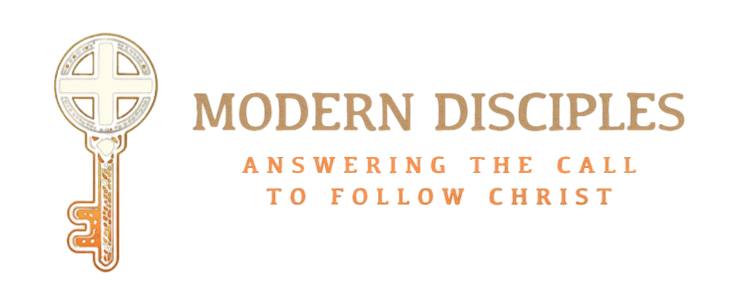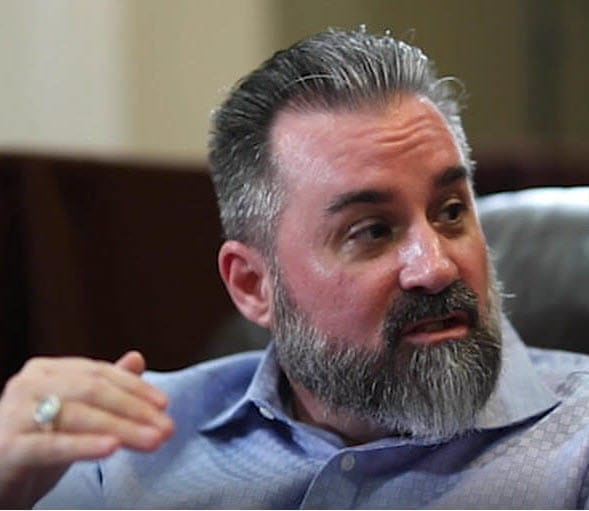
Systematic Theology
Organizing Biblical Truths for Deeper Understanding
Here's what most Christians don't realize: the Bible isn't a random collection of spiritual thoughts—it's a unified revelation of God that fits together like a perfectly designed puzzle. But without a system for organizing biblical truth, you'll spend your life collecting pieces without ever seeing the complete picture. Micro-promise: Systematic Theology isn't about making faith complicated—it's about organizing what God has already revealed so you can understand it clearly and live it confidently.
I used to think systematic theology was for seminary nerds who enjoyed making simple things complicated. Then I realized something: I was the one making things complicated by refusing to organize what I was learning. I had random Bible knowledge scattered everywhere but no framework to connect it.
Systematic theology is like having a filing system for biblical truth. Instead of stuffing everything into one drawer and hoping you can find it later, you organize related truths together so you can access them when you need them.
This isn't about replacing the Bible with human systems. It's about organizing what the Bible teaches so you can understand it better, remember it longer, and apply it more effectively.
Sharp Edge: If you've been a Christian for years but can't explain the difference between justification and sanctification, or you think theology is "just human opinion," you're not avoiding complexity—you're choosing confusion.
What Systematic Theology Actually Does
It Organizes Biblical Truth
The Bible contains 66 books written over 1,500 years by 40+ authors. Without organization, it's easy to get lost in the details and miss the big picture. Systematic theology takes everything Scripture teaches about specific topics and organizes it coherently.
Think of it like this: if the Bible is a massive library, systematic theology is the card catalog that helps you find what you're looking for.
It Connects the Dots
Scripture interprets Scripture. A verse in Romans connects to a passage in Genesis. A psalm illuminates a prophecy. Systematic theology helps you see these connections instead of treating each passage in isolation.
For example, understanding God's covenant with Abraham (Genesis 12) helps you understand Paul's argument about justification by faith (Romans 4). Systematic theology shows you how these passages work together.
It Prevents Theological Errors
When you study topics in isolation, you can develop lopsided theology. Focus only on God's love and you might minimize His justice. Emphasize only His sovereignty and you might ignore human responsibility. Systematic theology forces you to consider all of Scripture's teaching on a topic.
It Makes Truth Practical
Systematic theology isn't abstract theorizing. It organizes truth so you can apply it. When you understand what Scripture teaches about the church, you know how to participate in church life. When you grasp biblical teaching about sanctification, you understand how spiritual growth works.
The Major Categories Explained
Theology Proper: The Study of God Himself
This is the foundation of everything else. What is God like? What are His attributes? How does He relate to creation?
Key Topics:
God's attributes (omniscience, omnipotence, omnipresence)
The Trinity (one God, three persons)
God's sovereignty and providence
God's holiness, love, and justice
Why it matters: Everything else you believe flows from what you believe about God. Get this wrong, and everything else goes sideways.
Christology: The Study of Jesus Christ
Who is Jesus? What did He accomplish? How do His divine and human natures work together?
Key Topics:
The incarnation (God becoming man)
The hypostatic union (two natures, one person)
The atonement (how Christ's death saves us)
Christ's resurrection and ascension
Why it matters: Christianity rises or falls on who Jesus is and what He accomplished. This isn't optional theology.
Soteriology: The Study of Salvation
How are people saved? What role do faith and works play? How does the Holy Spirit apply salvation?
Key Topics:
Justification (declared righteous)
Sanctification (made righteous)
Regeneration (born again)
Perseverance of the saints
Why it matters: This is the Gospel. Understanding salvation correctly affects how you live, how you share your faith, and how you view your relationship with God.
Ecclesiology: The Study of the Church
What is the church? How should it be organized? What are its purposes and practices?
Key Topics:
The nature of the church (body of Christ, bride of Christ)
Church government and leadership
Ordinances (baptism and communion)
The church's mission
Why it matters: You can't be a faithful Christian in isolation. Understanding the church helps you participate in God's community correctly.
Eschatology: The Study of Last Things
What happens when we die? When will Jesus return? What will the new creation look like?
Key Topics:
The return of Christ
The resurrection of the dead
Final judgment
The new heavens and new earth
Why it matters: How you view the future affects how you live today. Eschatology provides hope and motivation for faithful living.
How Systematic Theology Works in Practice
It Answers Life's Big Questions
When someone asks, "How can a loving God allow suffering?" systematic theology helps you draw from multiple biblical passages to provide a comprehensive answer that considers God's sovereignty, human sin, and His ultimate plan for redemption.
It Prevents Doctrinal Drift
Churches and individuals can slowly drift from biblical truth without realizing it. Systematic theology provides guardrails by organizing what Scripture clearly teaches on essential topics.
It Builds Theological Confidence
When you understand how biblical truths fit together, you can engage with confidence in discussions about faith. You're not just sharing opinions—you're explaining what God has revealed.
It Enhances Bible Study
Systematic theology doesn't replace Bible study—it enhances it. When you read about God's love in 1 John, your systematic understanding of God's attributes helps you see how His love relates to His justice, holiness, and mercy.
Common Systematic Theology Mistakes
The Academic Trap
Treating systematic theology as an intellectual exercise divorced from spiritual life. This turns theology into trivia instead of transformation.
Solution: Always ask, "How does this truth change how I live?" Theology that doesn't affect behavior isn't biblical theology.
The System Worship
Elevating your theological system above Scripture itself. This happens when you force biblical passages to fit your system instead of letting Scripture shape your system.
Solution: Hold your systematic understanding lightly. Be willing to adjust when Scripture challenges your categories.
The Complexity Addiction
Making theology more complicated than necessary. Some people enjoy theological complexity for its own sake, losing sight of the practical purpose.
Solution: Remember that theology serves the church, not the other way around. Keep it as simple as Scripture allows, but no simpler.
The Denominational Blinders
Assuming your denomination's systematic theology is identical to biblical theology. Every tradition has strengths and blind spots.
Solution: Study Scripture first, then see how different systematic approaches organize its teaching. Let the Bible be your final authority.
Building Your Systematic Understanding
Start with the Basics
Don't try to master every theological nuance immediately. Begin with fundamental doctrines like the Trinity, salvation by grace, and the authority of Scripture.
Use Reliable Resources
Good systematic theology textbooks organize biblical teaching clearly and cite their sources. Wayne Grudem's "Systematic Theology" and Louis Berkhof's "Systematic Theology" are excellent starting points.
Study Scripture First
Never let systematic theology replace Bible study. Use it to organize what you're learning from Scripture, not to substitute for Scripture.
Connect Doctrine to Life
Always ask how theological truth applies to your daily life. Doctrine that doesn't change behavior isn't worth studying.
Engage with Different Perspectives
Study how different traditions organize biblical truth. Reformed, Arminian, and dispensational systems each offer insights, even if you don't agree with everything.
Why Every Christian Needs This
For Personal Growth
Systematic theology helps you understand how different aspects of your faith connect. It shows you how God's love relates to His justice, how salvation connects to sanctification, and how the church fits into God's eternal plan.
For Evangelism
When someone asks hard questions about Christianity, systematic theology helps you provide comprehensive, biblical answers. You can explain not just what you believe, but why you believe it and how it all fits together.
For Discipleship
Whether you're teaching Sunday school, leading a small group, or mentoring a new believer, systematic theology provides the framework for explaining Christian truth clearly and comprehensively.
For Spiritual Warfare
False teaching often attacks one area of doctrine while ignoring others. Systematic theology helps you spot errors by showing how biblical truths connect and support each other.
We don't sidestep hard topics. We face them with Scripture, honesty, and respect. Start by exploring our category pages—they're practical and built to help you think biblically. If what you find is useful, take your time and drill down into the articles within each category. If you do, you'll learn a lot—and you'll be better equipped to live like Christ.
The Trinity Explained: Understanding One God in Three Persons - Understand the foundational doctrine of one God existing in three persons: Father, Son, and Holy Spirit.
Reformed Theology: A Biblical Framework for Understanding God's Sovereignty - Explore how Reformed theology emphasizes God's sovereignty and grace in salvation and Christian living.
Arminianism vs. Calvinism: Understanding the Debate on Free Will and Predestination - Examine the theological debate between Arminian and Calvinist perspectives on salvation and divine sovereignty.
Put This Into Practice
• Choose one systematic theology category (like Christology) and study what Scripture teaches about it over the next month.
• Get a basic systematic theology textbook and read one chapter per week, comparing it with relevant Bible passages.
• When you encounter a difficult Bible passage, ask which systematic category it fits into and how it relates to other passages on the same topic.
• Practice explaining one fundamental doctrine (like the Trinity or salvation) to someone else using systematic organization.
• Start a theology notebook with sections for each major category, adding insights as you study Scripture.
Sharp Edge: If you think you can understand Christianity without systematic theology, you're like someone trying to understand medicine without anatomy. You might know some symptoms, but you'll never understand how the body actually works.
Conclusion
Systematic theology isn't about making faith more complicated—it's about organizing divine truth so you can understand it clearly and live it faithfully. God didn't reveal Himself randomly; He revealed Himself systematically throughout Scripture.
Stop treating theology like it's optional. Every Christian is a theologian—the only question is whether you'll be a good one or a bad one. Systematic theology helps you become a good one.
The goal isn't to master every theological detail. The goal is to understand God's revelation well enough to worship Him accurately, live for Him faithfully, and share Him confidently. Systematic theology gives you the tools to do exactly that.

Chris Daniel, just a servant of Christ calling others to be ready. Like the Bereans, I try to examine Scripture daily to see if what I hear is true. If you're struggling to live as we're called, you're still in the fight. Don't give up.
Category 2 - Christian Apologetics

Category 3 - Bible Study

Category 4 - Theology


"Most middle-class Americans tend to worship their work, work at their play, and play at their worship. As a result, their meanings and values are distorted. Their relationships disintegrate faster than they can keep them in repair. Their lifestyles resembles a cast of characters in search of a plot." - Gordon Dahl
"The Bible is a reliable collection of historical documents written down by eyewitnesses during the lifetime of other eyewitnesses that report supernatural events that took place in fulfillment of specific prophecies and claimed their writings were divine rather than human in origin."
- Dr. Voddie Baucham on 2 Peter 1





